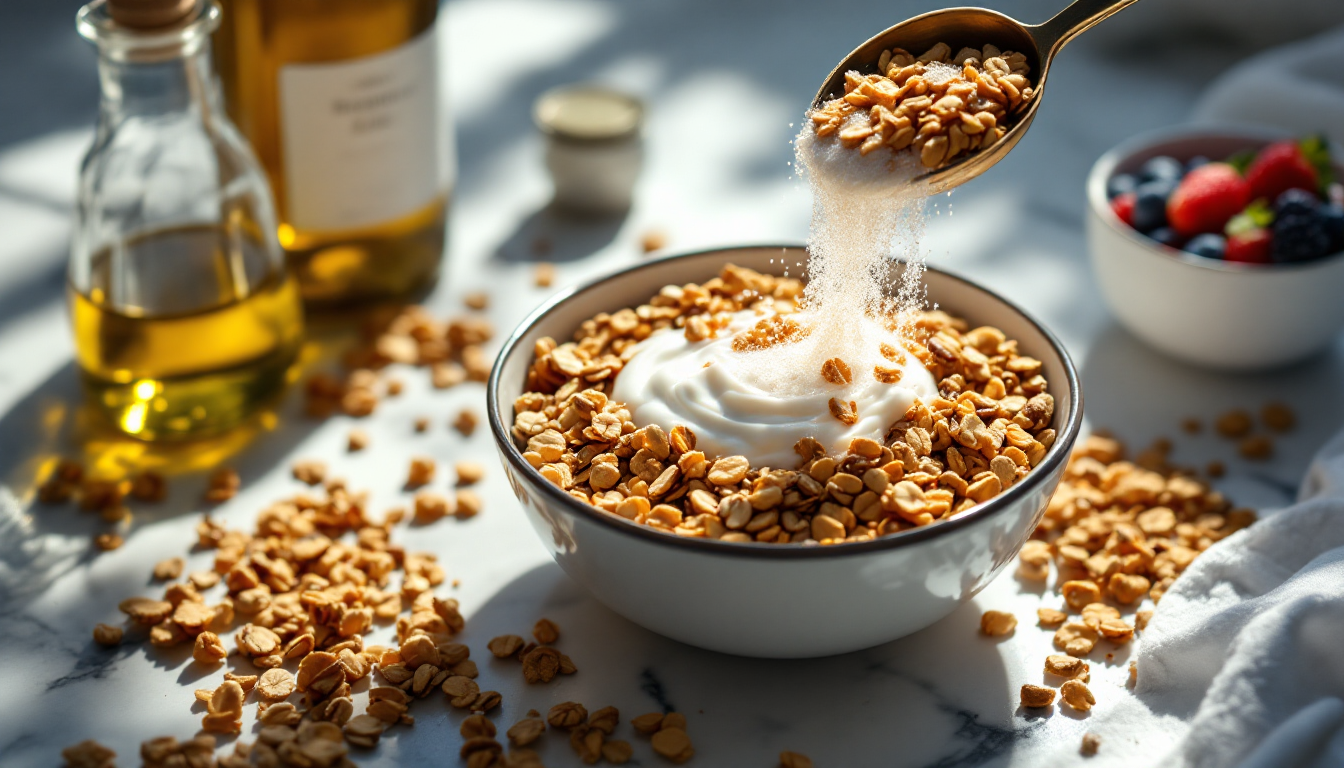Ancient Grains Probiotic Granola has gained popularity as a seemingly healthy breakfast option, but a closer look reveals concerning nutritional issues beneath its health halo. Despite containing beneficial ingredients like quinoa and amaranth, this product poses several significant health risks that consumers should understand.
The Deceptive Health Halo of Ancient Grains
While ancient grains offer legitimate nutritional benefits, their presence doesn’t automatically make granola healthy. Most commercial Ancient Grains Probiotic Granola products contain 7-12g of added sugar per small serving, often disguised behind terms like “honey,” “maple syrup,” or “organic cane sugar.” Dr. Melissa Richards, nutritional biochemist at Cornell University, explains:
“The ancient grain label creates a powerful health perception that often blinds consumers to the product’s high sugar content. One serving can contain nearly half the daily recommended sugar for women.”
The Sugar Trap: Why Your Gut Health Suffers
The irony of probiotic granola is striking – it delivers beneficial bacteria while simultaneously feeding harmful gut microbes with excess sugar. Research published in the Journal of Nutritional Science demonstrates that high-sugar foods can negate probiotic benefits by altering gut flora balance. A typical 1/2 cup serving contains around 9g of added sugar – equivalent to over 2 teaspoons – creating an environment where harmful bacteria thrive.
Caloric Density: The Weight Gain Culprit
At approximately 450-480 calories per cup, Ancient Grains Probiotic Granola is surprisingly calorie-dense. Most consumers drastically underestimate their portions, with studies showing the average self-served “bowl” contains 2-3 servings. Combined with milk or yogurt, a single breakfast can exceed 600 calories. This contributes to the paradox where health-conscious consumers gain weight despite choosing “healthy” foods.
The Oil Problem You’re Overlooking
Many Ancient Grains Probiotic Granola products rely on refined vegetable oils like soybean or sunflower oil to create their crunchy clusters. These oils are high in omega-6 fatty acids, which can promote inflammation when consumed in excess relative to omega-3s. The typical Western diet already skews heavily toward omega-6s, making this additional source problematic for long-term heart health.
Medical Case Study: The Granola Paradox
Dr. James Carter, endocrinologist at Mayo Clinic, reports:
“I’ve treated numerous patients with prediabetes who were consuming Ancient Grains Probiotic Granola daily, believing it was supporting their health. Several experienced elevated blood glucose levels and weight gain despite their ‘healthy’ breakfast choice. When they switched to unsweetened alternatives, their markers improved within weeks.”
Misleading Marketing: Decoding Label Claims
Product packaging often emphasizes ancient grains and probiotics while downplaying sugar content. Common tactics include:
- Highlighting “contains 1 billion CFU probiotics” without mentioning sugar content
- Using multiple sweetener names to push “sugar” lower in the ingredient list
- Featuring “ancient grain” prominently while burying sweeteners in fine print
- Using terms like “honey-sweetened” to imply natural wholesomeness
Hidden Health Impacts Beyond Weight
Regular consumption of high-sugar granola may contribute to insulin resistance, inflammation, and altered gut microbiome composition. A 2024 study in the International Journal of Obesity found that participants consuming sweetened breakfast cereals experienced greater hunger throughout the day compared to those eating protein-rich, low-sugar alternatives.
Healthier Alternatives You Can Actually Enjoy
Instead of commercial Ancient Grains Probiotic Granola, consider these alternatives:
- Homemade granola with oats, nuts, and minimal maple syrup (1-2 tbsp per batch)
- Plain Greek yogurt topped with raw nuts, seeds, and a small amount of fresh fruit
- Overnight oats with chia seeds and unsweetened plant milk
For a truly probiotic breakfast, fermented foods like plain yogurt or kefir provide more effective delivery of beneficial bacteria than granola.
The Bottom Line: Ancient Wisdom for Modern Eaters
Ancient grains themselves are nutritional powerhouses – it’s what manufacturers add to them that creates problems. Like water transforming into wine, these wholesome ingredients become nutritional liabilities when combined with sweeteners and oils. If you enjoy granola, treat it as a condiment rather than a meal, using a small sprinkle to add crunch to truly healthy bases. Your body’s ancient wisdom will thank you for respecting its true nutritional needs.
